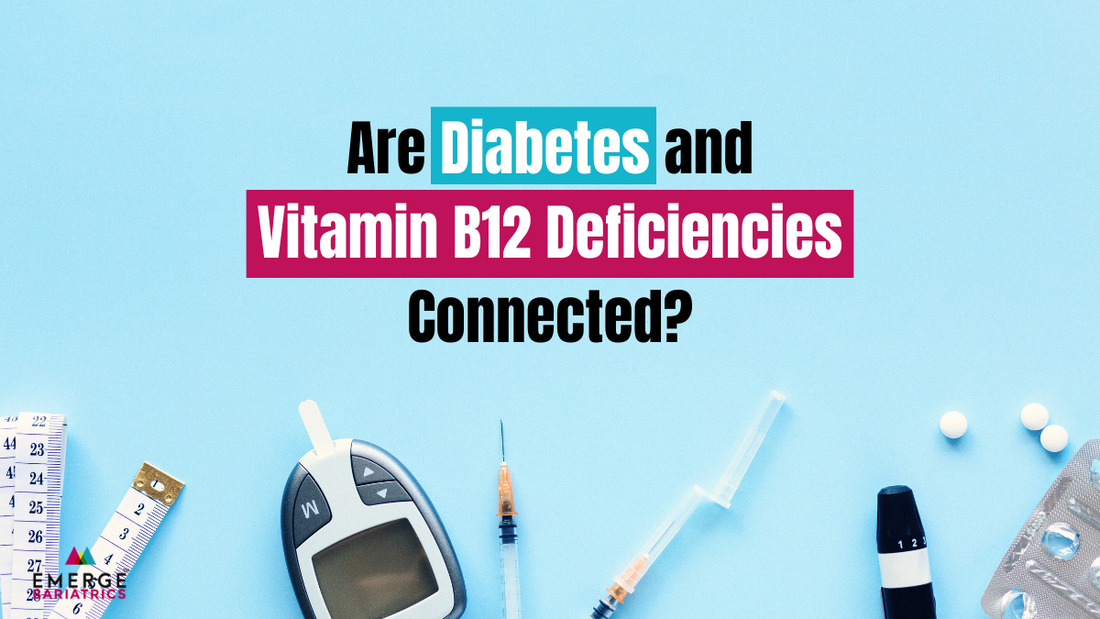Both diabetes mellitus and vitamin B12 deficiencies are two common health conditions affecting millions worldwide. Recent research has suggested a link between the two, finding that individuals who have type 2 diabetes and take metformin are more likely to develop vitamin B12 deficiencies. Those who take higher doses of metformin and for more extended periods are even at greater risk. In this blog, we will shed light on the connection between the two and give solutions to prevent nutrient deficiencies.
What is Type 2 Diabetes?
Type 2 diabetes is a chronic condition where the body can not produce enough insulin or effectively use it, resulting in elevated blood sugar levels.
What is Vitamin B12?
Vitamin B12, also known as cobalamin, is an essential nutrient that plays a vital role in red blood cell formation, neurological health, and DNA synthesis.
The Connection Between Diabetes and B12 Deficiency
The exact mechanisms responsible for the connection are still being researched, but it is hypothesized that vitamin B12 absorption can be interrupted in individuals with type 2 diabetes due to complications like gastroparesis, a condition where the stomach takes longer to empty. This malabsorption can also be magnified by taking metformin, the most common medication prescribed for patients with diabetes. Both conditions, if left untreated, can cause neuropathy, which is damage to the nervous system. Here are 11 signs and symptoms to look for to avoid long-term damage.
Symptoms of vitamin B12 deficiency:
- Weakness
- Numbness
- Trouble walking
- Weight loss
- Irritability
- Increased heart rate
- Nausea
- Headaches
- Depression
- Mental Fog
- Pale or yellow skin
If you believe you are showing signs of a vitamin B12 deficiency, please contact your primary care physician for testing.
What you can do to prevent complications
- Adjust medications: Speak to your primary care physician about the possible risks associated with taking metformin and its impact on B12 absorption.
- Explore B12 supplementation: Include a vitamin B12 supplement in your vitamin regimen.
- Eat vitamin B12-rich foods: Include a variety of meat, fish, poultry, eggs, and dairy products in your diet.
- Lifestyle modifications: Adopt a healthy lifestyle that includes regular exercise and a balanced diet.
Conclusion
Long-term use of metformin can lead to vitamin B12 deficiencies, which, if left untreated, can lead to long-term complications. If you have reason to believe you may be at risk, reach out to your primary care provider for further testing.
Related blogs:
